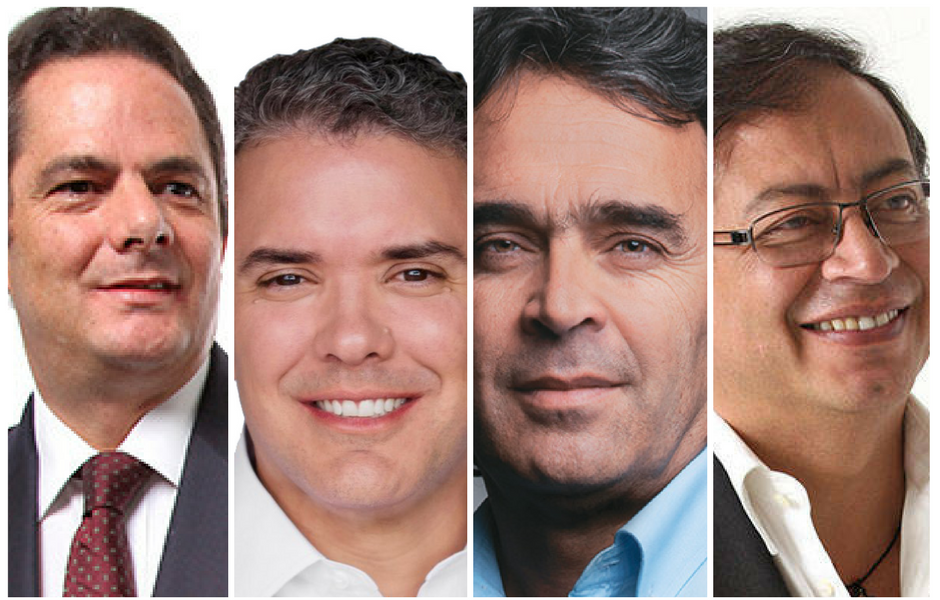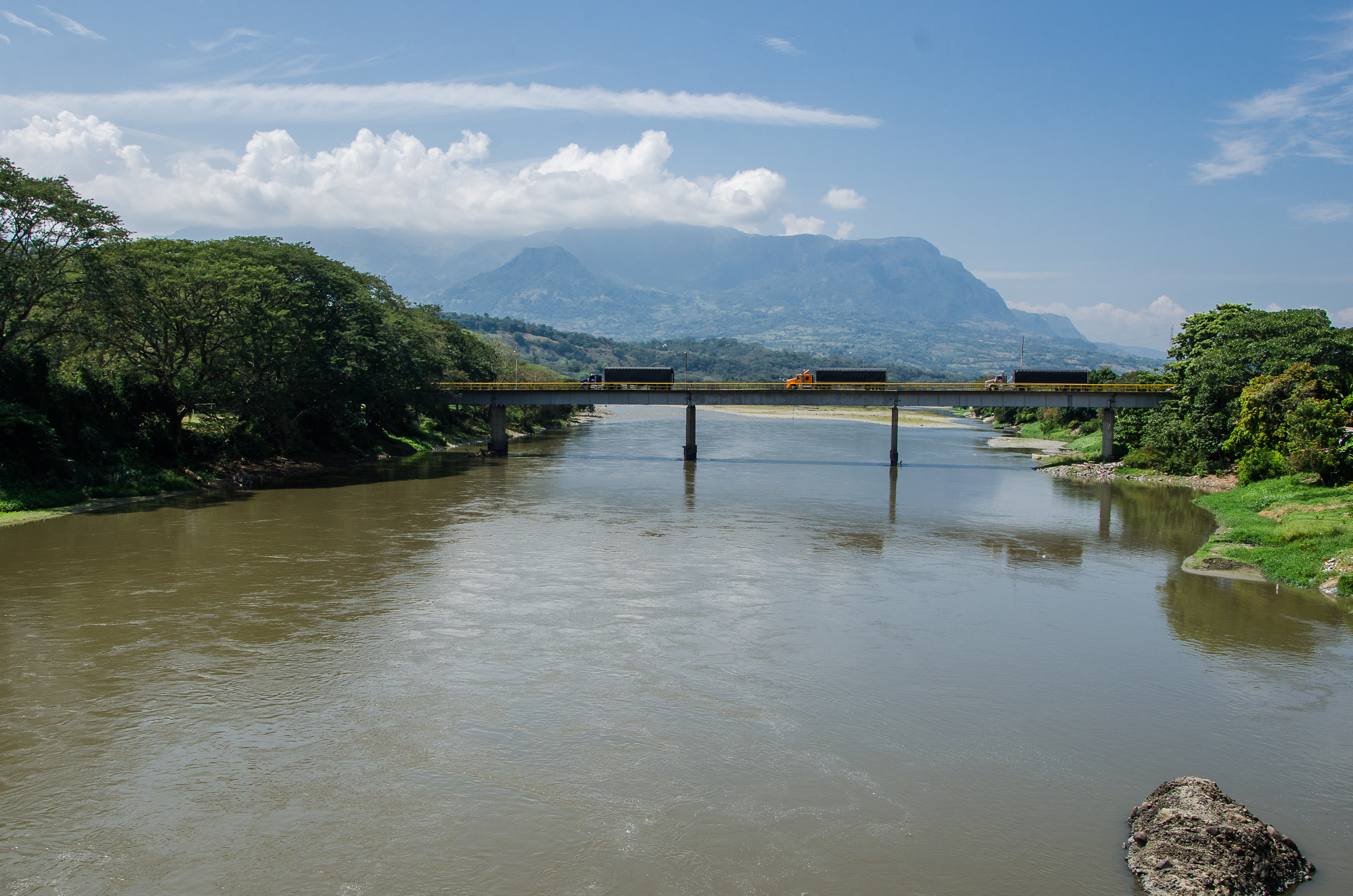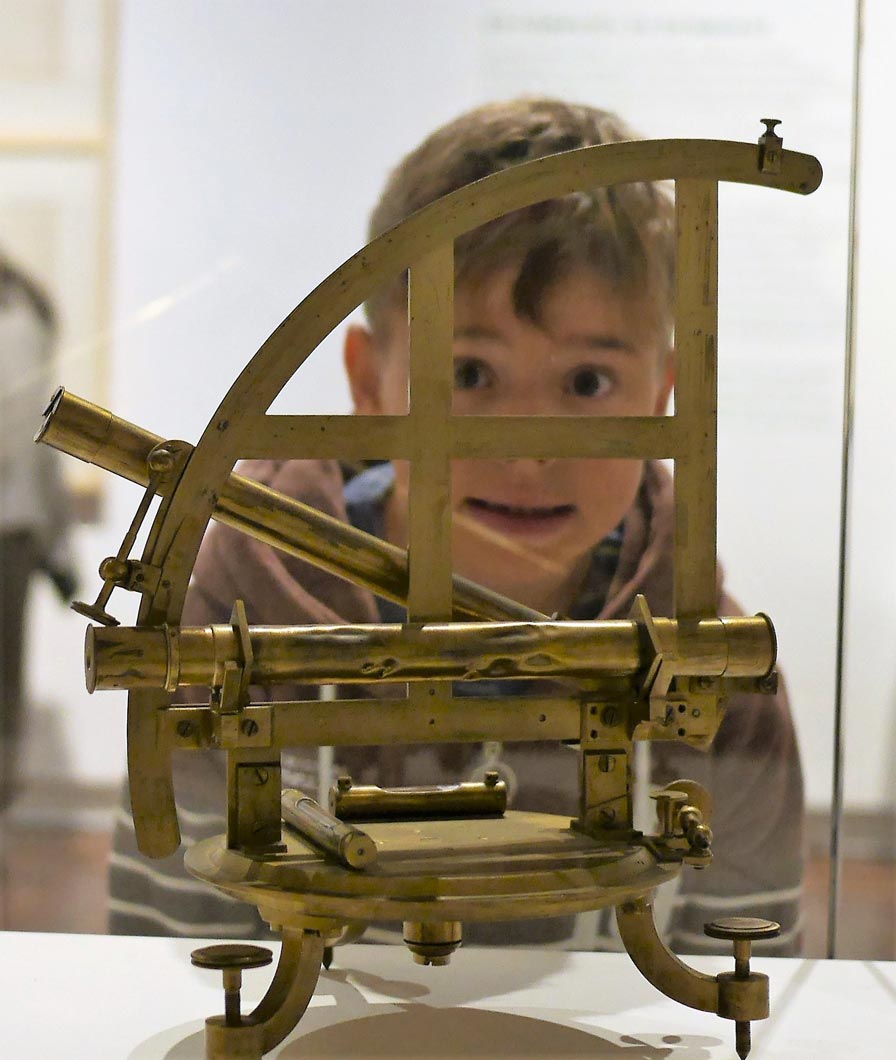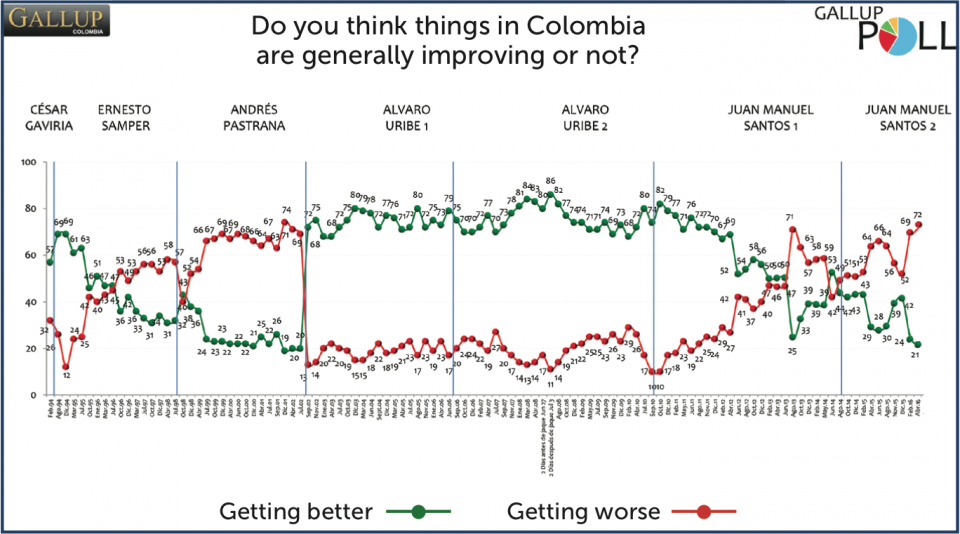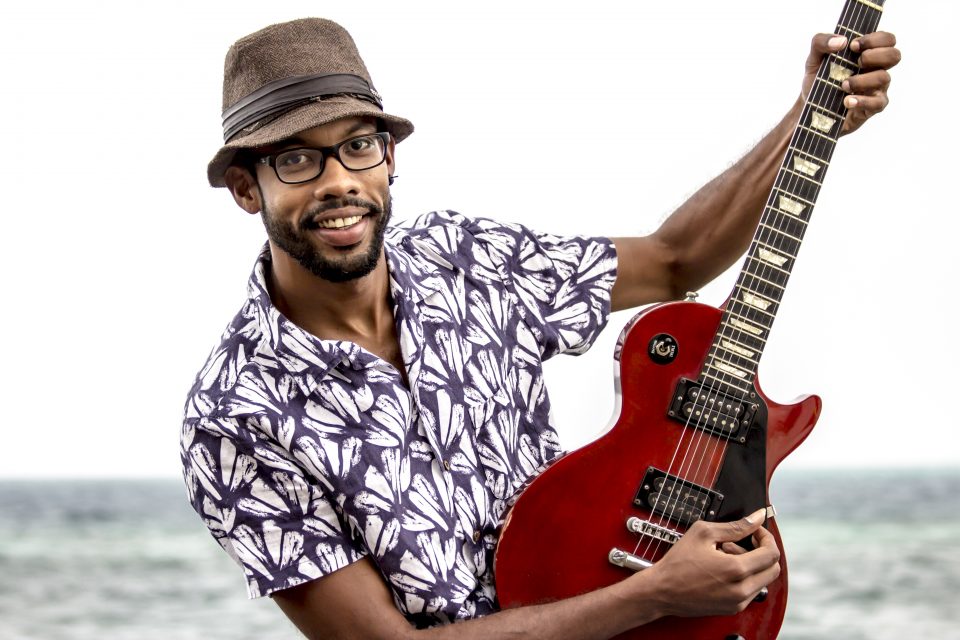
Singer Elkin Robinson chats about island life and his new album. Photo: Elkin Robinson
Elkin Robinson talks about his latest album Sunshine as well as Providencia, his back terrace, the sea, the moon and the music.
I meet Elkin Robinson outside his hotel in Quinta Camacho one evening and we walk to a small Italian restaurant nearby, neither of us have any better suggestions. The cold Bogotá evening and the dingy atmosphere couldn’t be further from the tropical sound of his music and the island of Providencia, or Old Providence as he calls it.
From the start, Elkin is friendly and a little shy. The formalities of a normal interview are quickly broken as he’s curious about my job and what I’m doing in Bogotá. He’s a reflective thinker and answers my questions with ease, successfully dissimulating any well-rehearsed answers. “I like interviews, not TV interviews because you feel like you have to be funny. I like interviews like this because I like to talk about serious things.”
On the map of the world, the tiny island of Providencia doesn’t even appear as a speck in the vast blue of the Caribbean Sea. It’s geographically closer to Nicaragua so it often gets chopped off the map of Colombia along with its bigger neighbour, the tourist hotspot San Andrés. Far from the mainland, most Colombians and the government don’t give it much attention, unless looking for a romantic getaway or top-notch diving. Population-wise, Providencia is small, “Everybody is famous,” jokes Elkin, “We have 15 years saying five thousand [people], so maybe six thousand now.”
Related – Rock al Parque: Not just for metalheads
Culturally and historically, the people of Providencia are closer to neighbouring Caribbean islands than mainland Colombia. First colonised in 1629 by British puritans, Elkin explains that an exchange between the British and Spanish government for Gibraltar eventually left the tiny island in the hands of Colombia. “Electricity arrived on the island around 1979, and even then it was only in the evenings and not all the time,” says Elkin. “The only thing learnt about Colombia was through TV, and the channels they got were in the USA but not from Colombia, it’s like seeing Colombia from somewhere outside.” From his explanation, the country sounds like that distant relative you’re told you are related to, but is in fact a complete stranger.
In terms of future sound, Elkin says he’s planning a more Nick Drake style album, just vocals and guitar, but that will have to wait until next year.
Tertiary education is non-existent on Providencia, so many islanders like Elkin travel to the mainland to pursue their ambitions. “When I was in the island, the island was my world and that was that, but I did use to watch the stars and think ‘what’s out there’. I had two days in Bogotá and I was like oooh, no sea, no fish, no crab,” he says musically, something I’ve noticed from the get-go. “But it’s not like Tarzan going to the city either.” We laugh about this and later I find out that Providencia had Snickers way before Colombia. The island’s proximity to the US means that American products are more common than in Colombian. Many tourists are often surprised (and disappointed) to find Miller and Heineken instead of Club Colombia.
The bridging of identities and the promotion of bilingual rights are key themes in his latest album Sunshine produced by Brit Richard Blair, who also works with Sidestepper. The single, ‘Creole Vibration’ is a call for Creole to be valued in the education system. From the perspective of a schoolboy Elkin sings that “the best time is around ten, that’s the break time when I can speak up with my friends, in a Creole vibration.” The mother tongue on the island is Creole, an oral language that originates from old English.
Towards the end of the 20th century, in an effort to ‘Colombianise’ the islanders, the government enforced Spanish to be taught in schools over English. “Before then, we had much better literacy rates than Colombia,” explains Elkin, “My grandparents don’t speak Spanish, my parents’ generation don’t speak Spanish that good.” It’s a familiar story felt by many language minorities, the enforcement of one language in the education system leaves many disengaged and literacy rates drop.
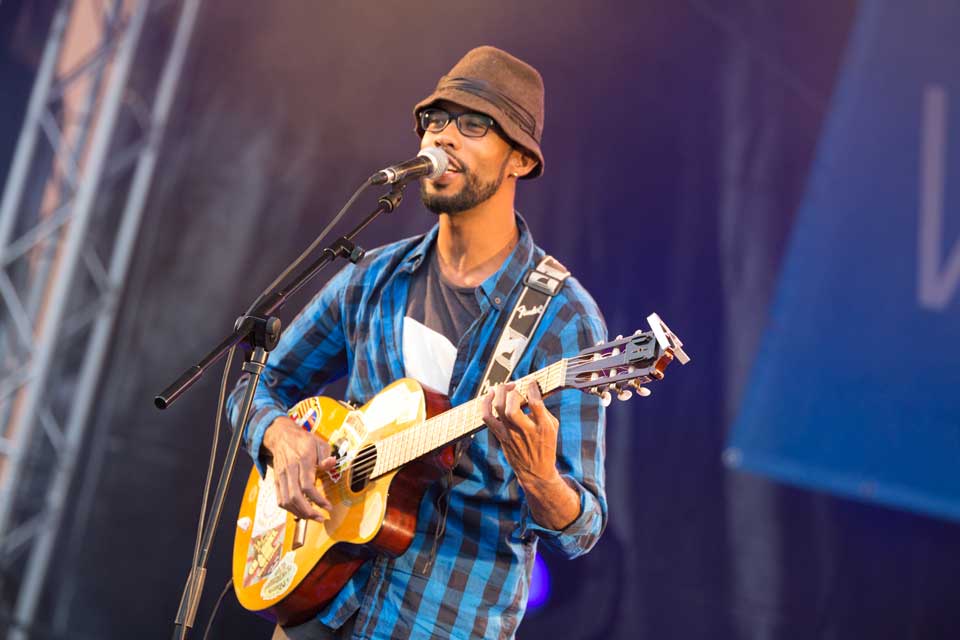
Elkin Robinson at the Wassermusik Festival in Berlin. Photo: Elkin Robinson
However, with this in mind, Elkin is not anti-Colombian, an attitude prevalent on both Providencia and San Andrés. “As I sing in the song ‘Bilingual Rights’, I’m not saying ‘get rid of Spanish’, it’s good for me to speak three languages. When you don’t educate yourself in your language you have technical words that’s hard to find. Creole is something from the street, when you talk about something serious you need to take words from English and even Spanish.”
The resentment felt by many islanders towards the mainland is understandable. “In Providencia we didn’t receive the good things from Colombia, we didn’t receive the cumbia or music, we received the narco-traffic and the politricks.”
Although far from the conflict, in recent years Providencia has become a hub for drug trafficking. As highly competent seamen, many islanders have become involved in drug-running. One BBC article estimates that one in four men are serving prison sentences – a figure to be taken with a pinch of salt as official studies are lacking.
He also highlights that this distrust is also what’s left of seeds sown by the British, warning that the Spanish were coming. “It’s hard to reject history.”
By this point the bar has closed and we’ve wandered back towards the hotel, still engaged in conversation. On a sofa in the lobby, the topic switches to Elkin’s music. His band, branded under the name of Elkin Robinson, which he modestly tells me is only because it’s easier to get ahead, play calypso and mento rhythms on the jaw bone and T-box. “It looks like we are playing games, we are doing music how you did it 50 years ago.” The ‘games’ have certainly paid off as a recent concert in Costa Rica was a “boom” and the band also attracted a large audience at the Bio stage at Rock al Parque.
In terms of future sound, Elkin says he’s planning a more Nick Drake style album, just vocals and guitar, but that will have to wait until next year.
For all his talent, Elkin is not someone who enjoys bathing in the limelight, although he says he’s getting used to it. “I am a person who sits on my back terrace with the sea, the moon and the music. When I’m on stage I don’t want to be no one different from that.”
The interview ends with funny awkward anecdotes of having to serenade marriage proposals, and I’m left with the impression that his commitment to remain the same person he is on his back terrace is why our interview has felt more like an interesting conversation over beers.

